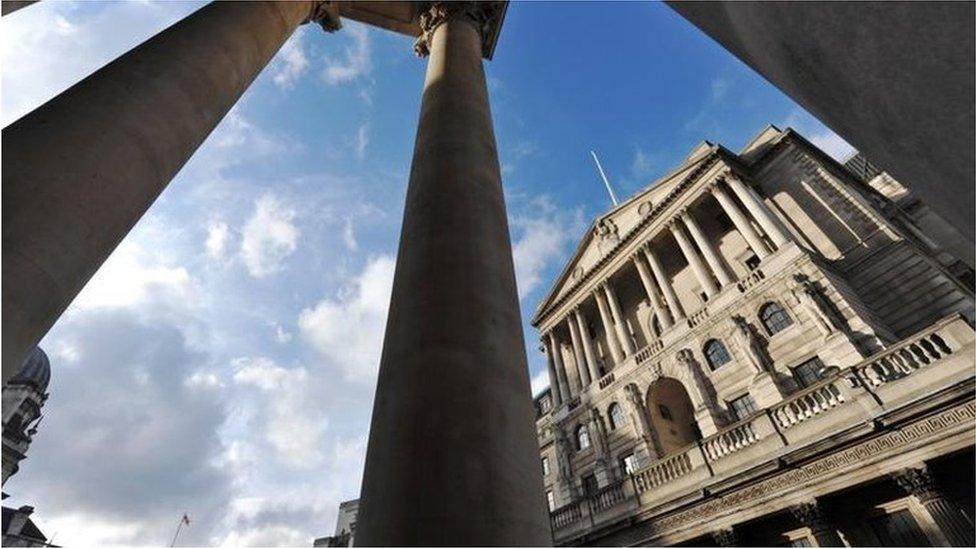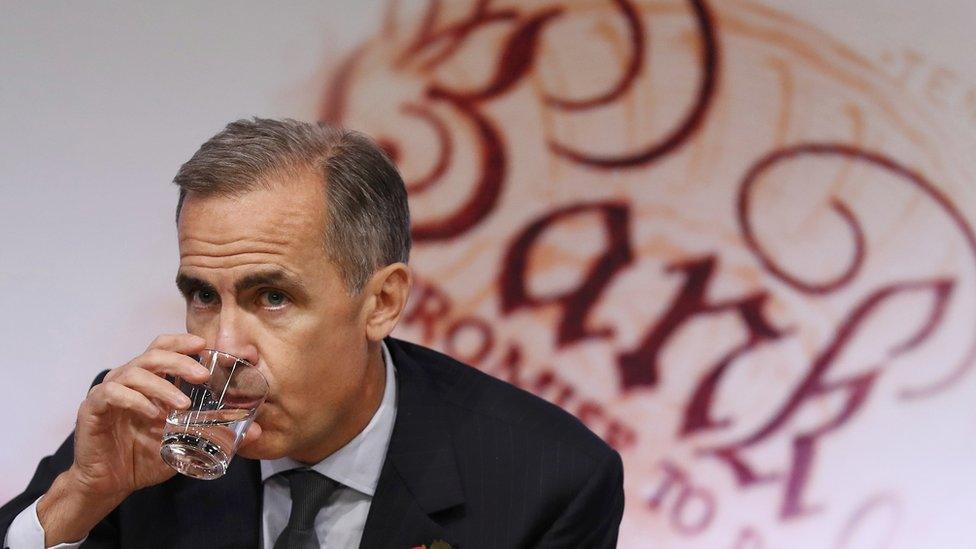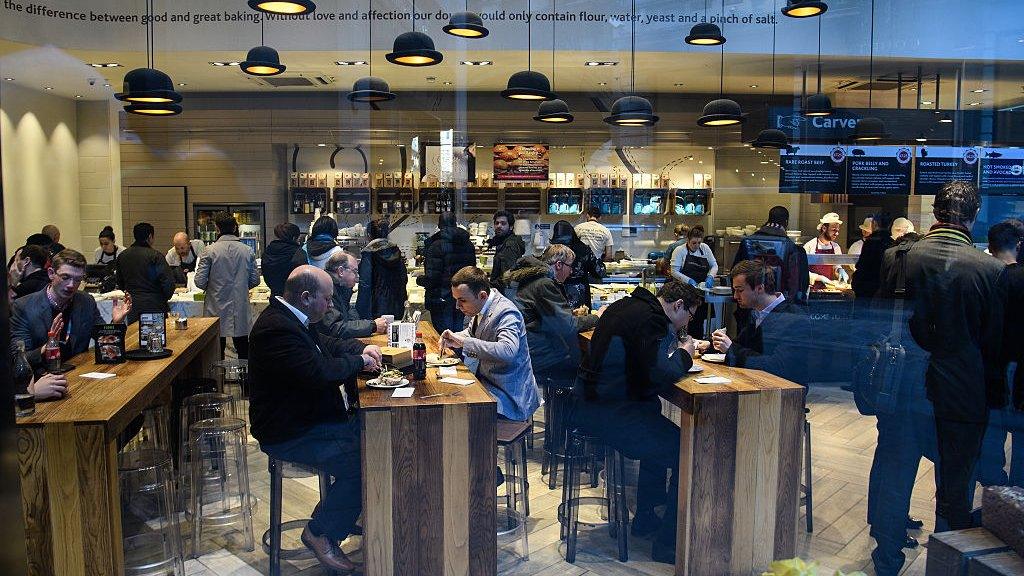UK interest rates kept on hold at 0.25%
- Published

UK interest rates have been kept unchanged at 0.25% by the Bank of England's rate setting committee.
However, one of the nine who sit on the Monetary Policy Committee (MPC), Kristin Forbes, expressed concern about inflation and voted to raise rates.
It was the first time since July last year that the vote to maintain rates had not been unanimous.
Analysts said it indicated the Bank of England could be closer to raising interest rates than they had thought.
"The minutes paint a picture of a committee moving a lot closer to hiking rates than markets had realised," said Neil Wilson, markets analyst at ETX Capital.
The Bank caught "markets off guard" as it "was expected to be a dud of a meeting," he added.
The surprise was reflected in the currency markets, where the pound turned losses against the dollar into a 0.6% gain, to trade at $1.2357.
The pound also gained ground against the euro, trading 0.7% higher at 1.1526 euros.
The FTSE 100 index, which has recently been moving in opposition to the pound, eased back from its earlier record highs. Before the Bank's decision, the index had hit a mid-session high of 7,444.

The Bank of England, led by governor Mark Carney, expects the UK economy to grow fairly briskly this year, at a rate of 2%.
However, it then predicts a slowdown amid uncertainty surrounding the conditions of the country's withdrawal from the European Union.
Against that uncertain background, many economists have predicted that the Bank will leave rates unchanged until at least 2019.
However, Ms Forbes, who is due to leave the MPC at the end of June, backed a rate rise on the grounds that inflation is "rising quickly and was likely to remain above target for at least three years".
Latest official figures showed the UK's inflation rate rose to 1.8% in January, which is below the Bank's 2% target but the highest rate for two and a half years.
Hawkish tone
The minutes from the MPC's latest meeting indicated some other committee members might also be close to voting for a rate rise.
The minutes said, external: "Some members noted that it would take relatively little further upside news on the prospects for activity or inflation for them to consider that a more immediate reduction in policy support might be warranted."
The fall in the value of the pound since the vote to leave the EU has meant goods brought into the country are more expensive.
Earlier on Thursday, the supermarket chain Sainsbury became the latest retailer to warn of the pressure to raise prices.
Other MPC members noted consumers were turning more cautious amid slowing wage growth and rising prices.
On Wednesday, the US central bank voted to increase interest rates, its second recent move upwards.
- Published15 March 2017

- Published3 March 2017
